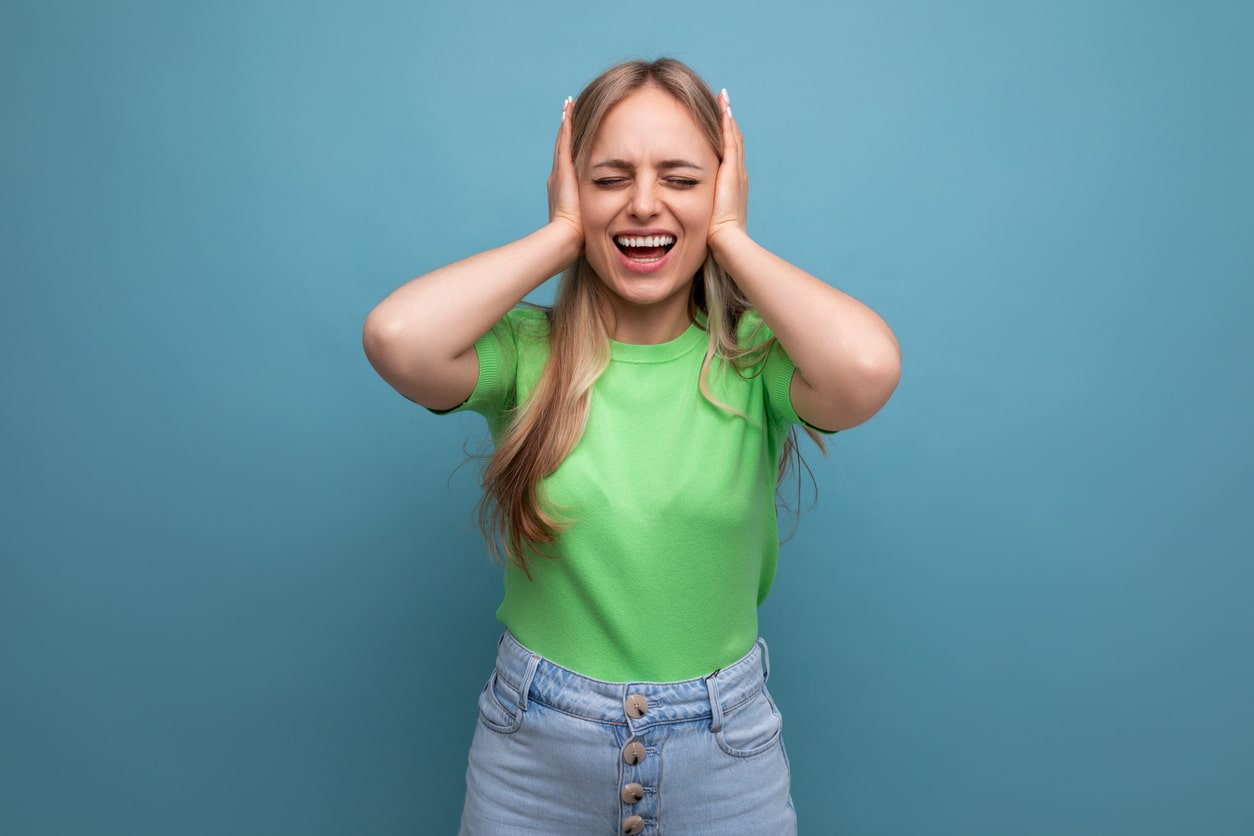Noise-related hearing loss affects approximately 5% of the global population. When you think of loud noise, booming concerts and earth-shaking explosions are probably the first culprits that come to mind. While these things can damage your hearing, they aren’t the only sources of dangerous noise.
Daily Sources of Loud Noise Exposure

Sound is measured in decibels (dB) or A-weighted decibels (dBA), which are adjusted to reflect how the human ear processes sound. Low decibel noises, under 80 dB, are unlikely to cause damage to your hearing, even with prolonged exposure. But there are a surprising number of everyday noises that creep into unsafe territory, about 85 dB and above. A few loud daily noises include:
- Hair dryer: 60-95 dB
- Blender: 80-90 dB
- Heavy traffic: 85 dB
- Electric drill: 95 dB
- Crying baby: 110 dB
- Leaf blower: 110 dB
- Squeaking toys held close to the ear: 110 dB
- Music through headphones: up to 112 dB
The louder a sound is, the faster it can cause hearing loss. For example, listening to music at maximum volume will damage your hearing faster than a quiet hair dryer set on low power.
What You Can Do To Prevent Hearing Loss Today
Preventive care makes a significant difference in your long-term hearing health. A few healthy hearing strategies to employ include:
- Wear ear protection. Earplugs and earmuffs deaden the force with which sound hits your ears, lowering your chance of hearing loss. Wear ear protection to concerts or action movies, during fireworks shows, while doing yard work or at jobs with a lot of noise exposure (mechanics, construction, assembly line, etc.). Midwest Hearing offers custom ear protection to support hearing health.
- Pay attention to daily noise exposure. If you are concerned that you have experienced excessive sound exposure, we recommend scheduling an appointment with an audiologist for a comprehensive hearing evaluation.
- Lower the volume. Jamming out to music is fun, but lowering the volume will allow you to enjoy your music for longer. If you have a smartphone, go into the headphone safety settings and set a decibel limit of 80. This feature will prevent you from raising the volume to unsafe limits.
- Prioritize your hearing health. Just as it’s important to schedule regular health checkups, it is important to prioritize hearing health. We recommend a baseline hearing screening for all adults past the age of 50. If your screening reveals hearing loss, our experts can get you on the right path to treatment without unnecessary delays.
With a few simple preventive steps, you can reduce your risk of hearing loss and continue enjoying clear sound for years to come. For more information on noise-related hearing loss or to schedule a hearing test, contact our experts at Midwest Hearing today.
